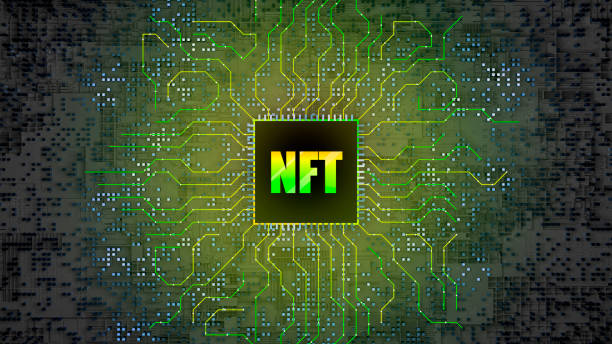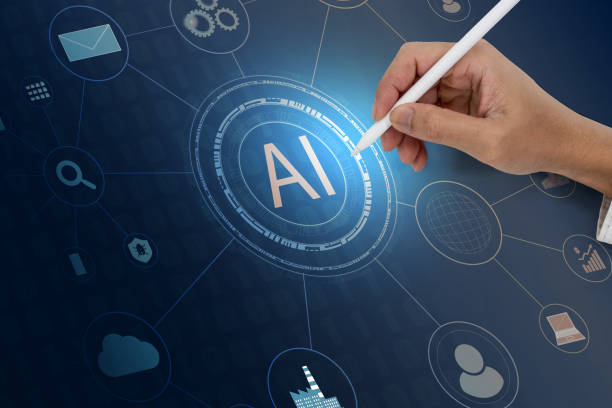What is an AI Assistant and How Does it Work?

An AI Assistant (Artificial Intelligence Assistant) is a computer program or software system designed using #Artificial_Intelligence algorithms to perform various tasks that typically require human intelligence. These tasks can include understanding natural language, answering questions, performing calculations, offering suggestions, planning, and making decisions. Artificial intelligence allows these systems to learn from data and improve their performance over time.
How an AI assistant works depends on its type and complexity. But in general, the process involves the following steps:
- Receiving Input: The AI assistant receives information through various inputs such as voice, text, or sensor data.
- Processing Information: The system processes the received information using machine learning algorithms and Natural Language Processing (NLP).
- Analysis and Understanding: The assistant attempts to understand the meaning of the information and identify patterns and relationships within it.
- Responding or Performing the Task: Based on the analysis, the system generates an appropriate response or performs the desired task. This response can be in the form of text, voice, or performing a specific action.
For example, a voice-based AI assistant like Alexa or Google Assistant first receives the user’s voice, then converts it to text, analyzes the text to understand the user’s command, and finally generates an appropriate response and provides it to the user in audio form. These systems use large databases and complex algorithms to learn and improve their performance.
Does your current website reflect your brand’s credibility as it should? Or is it scaring away potential customers?
Rasawweb, with years of experience in designing professional corporate websites, is your comprehensive solution.
✅ A modern, beautiful site tailored to your brand identity
✅ Significant increase in lead generation and new customers
⚡ Contact Rasawweb now for a free consultation on corporate website design!
Diverse Applications of AI Assistants in Daily Life

The applications of AI assistants are very broad and diverse and have penetrated almost all aspects of our daily lives. These applications include:
- Virtual Assistants: Like Siri, Google Assistant, and Alexa, which help users perform various tasks using voice or text, such as setting reminders, playing music, answering questions, and controlling smart home devices.
- Customer Support: Many companies use chatbots and AI assistants to provide customer support services. These systems can answer frequently asked questions, solve simple problems, and connect customers to human representatives if necessary.
- Healthcare: AI assistants can help in diagnosing diseases, providing medical advice, managing medications, and monitoring patient status.
- Education: These systems can act as private tutors, providing personalized feedback and creating educational programs tailored to the needs of each student.
- Finance: AI assistants can help manage accounts, provide investment advice, and predict market trends.
- Transportation: Self-driving systems and intelligent navigation assistants use AI to improve transportation safety and efficiency.
- Marketing: AI assistants can help analyze customer data, deliver targeted advertising, and improve the user experience.
Also, in the field of #Automation of work processes, AI assistants play a significant role. They can automate repetitive and time-consuming tasks, which increases productivity and reduces costs. The use of this technology is expanding, and it is predicted that it will play a more prominent role in our lives in the near future. The AI assistant has the potential to completely change how we interact with technology and the world around us.
Comparison of Popular AI Assistants: Siri, Google Assistant, and Alexa
![]()
In the world of AI assistants, Siri, Google Assistant, and Alexa are among the most popular and widely used options. Each of these assistants has its own features, strengths, and weaknesses. In this section, we compare these three popular AI assistants.
Siri
Siri is Apple’s AI assistant that comes pre-installed on iOS and macOS devices. Siri is known for its integration with the Apple ecosystem, ease of use, and focus on privacy. However, compared to Google Assistant and Alexa, Siri is slightly weaker in understanding natural language and providing more accurate answers.
Google Assistant
Google Assistant is Google’s AI assistant that is available on Android devices, smart home devices, and other platforms. Google Assistant is very strong in understanding natural language, providing accurate answers, and providing relevant information due to its access to vast amounts of Google data. Google Assistant also supports a wide range of devices and services.
Alexa
Alexa is Amazon’s AI assistant that is available on Echo devices and other smart home devices. Alexa is known for its focus on controlling smart home devices, providing online shopping services, and supporting a wide range of skills. Alexa is at the same level as Google Assistant in understanding natural language and providing accurate answers.
The following table compares the main features of these three AI assistants:
| Feature | Siri | Google Assistant | Alexa |
|---|---|---|---|
| Natural Language Understanding | Good | Very Good | Very Good |
| Accuracy of Responses | Good | Very Good | Very Good |
| Ecosystem Integration | Apple | Amazon | |
| Smart Device Control | Good | Very Good | Excellent |
| Language Support | Limited | Extensive | Extensive |
Choosing the best AI assistant depends on your needs and preferences. If you value integration with the Apple ecosystem, Siri is a good option. If you need accurate answers and access to extensive information, Google Assistant is a better choice. And if you are interested in controlling smart home devices and online shopping services, Alexa is a good option.
How to Use an AI Assistant to Increase Productivity

An AI assistant can help you increase productivity in various fields. Here are some ways to use these systems to increase productivity:
- Time Management: Use the AI assistant to set reminders, schedule meetings, and manage your to-do list.
- Automating Repetitive Tasks: Many repetitive tasks such as sending emails, searching for information, and creating reports can be automated using an AI assistant.
- Quick Access to Information: The AI assistant can help you quickly find the information you need, saving you time and energy.
- Improving Communication: Use the AI assistant to translate texts, write emails, and prepare presentations.
- Better Decision-Making: The AI assistant can help you make better decisions by analyzing data and providing suggestions.
For example, you can use the AI assistant to summarize lengthy articles, translate documents, create presentation slides, and even write social media posts. By using these systems, you can spend more time on more important and creative tasks.
Using an AI assistant not only increases productivity but also helps you experience less stress and create a better balance between your work and personal life. By automating repetitive tasks and quickly accessing information, you can spend more time relaxing, having fun, and doing activities you enjoy.
Is your current online store design causing you to lose customers and sales?
Rasawweb is your solution with modern and user-friendly online store designs!
✅ Significantly increase conversion rates and sales
✅ Create strong branding and gain customer trust
⚡ Get a free online store design consultation from Rasawweb!
Challenges and Limitations of Using AI Assistants

Despite the many benefits, using an AI assistant also comes with challenges and limitations. Some of these challenges include:
- Privacy and Security: The collection and use of personal data by AI assistants raise concerns about privacy and information security.
- Accuracy and Reliability: AI assistants are not always accurate and reliable and may provide incorrect or misleading information in some cases.
- Internet Dependency: Many AI assistants require an internet connection to function properly and become ineffective if the internet is disconnected.
- Cost: Using some AI assistants and related services can be costly.
- Learning and Adaptation: Using an AI assistant requires learning how to work with it and adapting to its features and limitations.
Also, the AI assistant may have difficulty understanding natural language and answering complex questions. These systems typically operate based on predefined patterns and may provide inappropriate responses when faced with unexpected situations or ambiguous questions.
Another challenge of using AI assistants is algorithmic biases. If the data used to train these systems is biased, the AI assistant may also exhibit similar biases. For example, a facial recognition system trained using data from a specific population may be less accurate in recognizing faces from other populations.
The Future of AI Assistants: Advances and Prospects

The future of AI assistants is very bright and full of potential. With the increasing advancements in the field of artificial intelligence, machine learning, and natural language processing, AI assistants are expected to offer many more capabilities in the near future. Here are some predictions about the future of AI assistants:
- Better Natural Language Understanding: AI assistants will be able to understand natural language more accurately and with better understanding.
- Greater Personalization: These systems will be able to provide more personalized responses and suggestions by learning the habits and preferences of users.
- Integration with More Devices: AI assistants will be integrated with a wider range of devices and services, allowing for their control and management.
- Self-Learning and Continuous Learning: These systems will be able to automatically learn from data and improve their performance without the need for human intervention.
- Collaboration with Humans: AI assistants will help humans perform various tasks as intelligent colleagues.
Also, the AI assistant is expected to play a more important role in new fields such as #Mental_Health, #Personalized_Education, and #Urban_Management. For example, an AI assistant can help people manage stress and anxiety, create educational programs tailored to the needs of each student, and improve the quality of urban life.
However, the development and use of AI assistants also require attention to ethical and social issues. It must be ensured that these systems operate fairly and without discrimination and protect the privacy and security of user information.
Important Tips for Choosing a Suitable AI Assistant

Choosing a suitable AI assistant depends on your needs and preferences. Here are some important tips for choosing a suitable AI assistant:
- Compatibility with Devices and Operating Systems: Make sure the AI assistant is compatible with the devices and operating systems you use.
- Features and Capabilities: Check the features and capabilities of the AI assistant and make sure it meets your needs.
- Privacy and Security: Check the privacy and security policies of the AI assistant and make sure it protects your information.
- Price: Check the price of the AI assistant and related services and make sure it fits your budget.
- User Reviews: Read reviews from other users about the AI assistant you are considering to learn about their experiences.
Also, before buying, try the trial or free version of the AI assistant to ensure its performance and efficiency. Keep in mind that the best AI assistant for you is the system that best meets your needs and is easy and enjoyable for you to use.
How to Protect Your Privacy When Using an AI Assistant?

Protecting privacy when using an AI assistant is very important. Here are some ways to protect your privacy:
- Privacy Settings: Check the privacy settings of the AI assistant and make sure it only collects essential information.
- Disabling the Microphone: When not needed, disable the AI assistant’s microphone to prevent unwanted listening.
- Deleting Activity History: Delete your activity history regularly to prevent unnecessary storage of information.
- Using a Strong Password: Use a strong and unique password for your account.
- Updating Software: Update the AI assistant software regularly to prevent security vulnerabilities.
Also, before using any new features or capabilities, carefully read its privacy policies. Keep in mind that protecting privacy is a shared responsibility, and you should also be active in this area.
| Action | Description |
|---|---|
| Review and Change Privacy Settings | Access the privacy settings of the device or software and change the level of access. |
| Use a VPN | Use a Virtual Private Network (VPN) to encrypt internet traffic. |
| Delete Personal Data | Periodically delete personal data stored by the AI assistant. |
Are you worried that your company’s old website will drive away new customers? Rasawweb solves this problem with a modern and efficient corporate website design.
✅ Increases your brand credibility.
✅ Helps to attract targeted customers.
⚡ Contact Rasawweb for a free consultation!
Key Tips for Training and Educating an AI Assistant

Training and educating an AI assistant is a complex and time-consuming process that requires attention to key points. Here are some important tips for training and educating an AI assistant:
- Collecting High-Quality Data: High-quality and diverse data is very important for training an AI assistant.
- Choosing the Right Algorithm: Choosing the right machine learning algorithm is important based on the type of tasks the AI assistant should perform.
- Setting Algorithm Parameters: Setting algorithm parameters correctly can help improve the performance of the AI assistant.
- Continuous Evaluation: Continuously evaluate the performance of the AI assistant and make the necessary changes if needed.
- Continuous Training: Continuously train the AI assistant to adapt to new changes and developments.
Also, when training the AI assistant, pay attention to ethical and social issues. Make sure the system operates fairly and without discrimination and protects the privacy and security of user information.
Ethical and Social Issues Related to AI Assistants

The development and use of AI assistants are associated with various ethical and social issues. Some of these issues include:
- Privacy: The collection and use of personal data by AI assistants raise concerns about privacy.
- Bias and Discrimination: If the data used to train AI assistants is biased, these systems may also exhibit similar biases.
- Transparency and Accountability: It should be clear who is responsible for the decisions and performance of AI assistants.
- Security and Abuse: AI assistants can be used for malicious purposes, such as spreading misinformation or carrying out cyberattacks.
- Employment: Task automation by AI assistants can lead to job losses in some industries.
To address these issues, there is a need to develop appropriate laws and regulations, as well as to educate and raise awareness among the public about the benefits and risks of using AI assistants.
Frequently Asked Questions
| Question | Answer |
|---|---|
| What is an AI assistant? | An AI assistant is a software program that uses artificial intelligence to perform various tasks for users, such as answering questions, setting reminders, playing music, and managing calendars. |
| What are some of the most well-known AI assistants? | Some of the most well-known AI assistants include Apple’s Siri, Google Assistant, Amazon’s Alexa, and Microsoft’s Cortana. |
| How does an AI assistant work? | These assistants use Natural Language Processing (NLP) to understand user commands (either spoken or written) and Machine Learning to improve their performance and personalize their responses. |
| What are the main uses of an AI assistant? | The main uses include setting alarms and reminders, playing music and podcasts, answering general knowledge questions, sending messages, making calls, controlling smart home devices, and providing weather or traffic information. |
| Can AI assistants speak with different accents? | Yes, many modern AI assistants can recognize and produce speech in different accents and languages. |
| What are the differences between an AI assistant and a chatbot? | An AI assistant is generally more comprehensive and can perform a wider range of tasks than just answering text-based questions (like controlling devices). Chatbots are designed primarily for text-based conversations on websites or messaging applications. |
| Is it safe to use an AI assistant? | Companies strive to ensure data security, but concerns remain about privacy and the storage of voice data. Users should review their privacy settings. |
| What will the future of AI assistants be like? | AI assistants are expected to become smarter, more predictive, and more integrated with everyday life and other devices in the future, allowing them to perform more complex tasks. |
| How can I activate an AI assistant? | They are usually pre-installed on smartphones and smart home devices. You can activate them by saying “Hey Siri”, “Ok Google” or “Alexa” and then giving your command. |
| Can an AI assistant help me with learning? | Yes, it can help with learning by providing information, defining words, translating texts, and even solving math problems. It can also play educational podcasts for you. |
And other services of Rasa Web Advertising Agency in the field of advertising
Smart custom software: A combination of creativity and technology to improve SEO ranking through SEO-focused content strategy.
Smart website development: An effective tool for digital branding with the help of optimizing key pages.
Smart SEO: An exclusive service for campaign management growth based on the use of real data.
Smart UI/UX: Transform SEO ranking with marketing automation assistance.
Smart advertising campaign: An effective tool for increasing sales with the help of proprietary programming.
And more than hundreds of other services in the field of internet advertising, advertising consulting, and organizational solutions
Internet Advertising | Advertising Strategy | Advertorial
Resources
What is Artificial Intelligence? Introducing Types, Applications, and Impacts
,Basic Artificial Intelligence Training – From Zero to One Hundred
,Artificial Intelligence Applications: 13 Important Examples in 2024
,What are the Applications of Artificial Intelligence?
? With Rasa Web Afrin, your business soars in the digital world! From SEO and targeted content production to multilingual website design and advertising campaign management, we are with you every step of your digital growth journey to have a powerful and lasting presence.
📍 Tehran, Mirdamad Street, next to the Central Bank, South Kazerun Alley, Ramin Alley, No. 6




